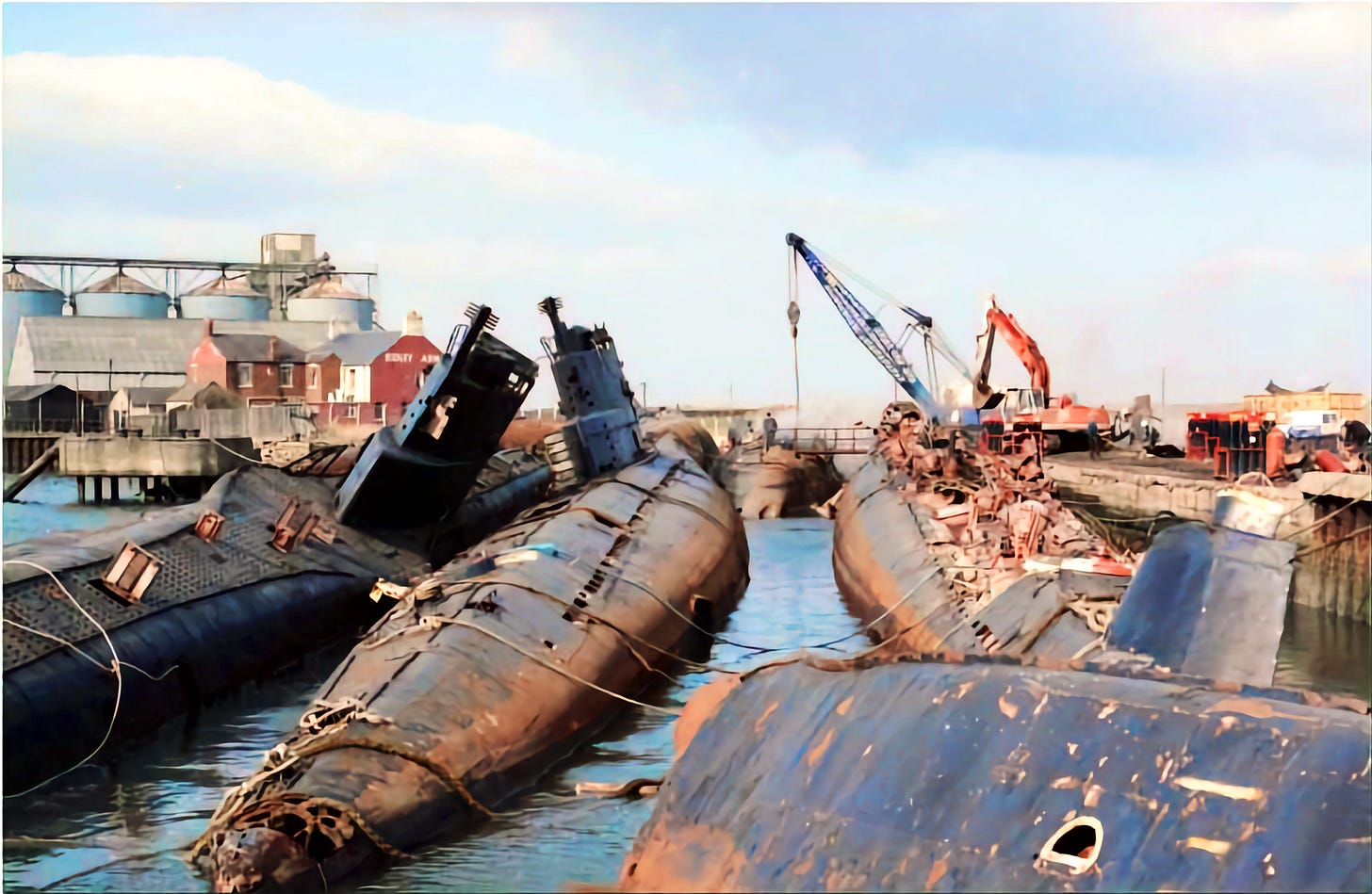502: Boring Quality Investing, Pepsi's Soviet Submarines, Nvidia's Cloud, Consuelo Mack, Guidewire, Canadian Oil, and Apollo Project
"Live with curiosity, act with integrity, and love unconditionally."
It's funny. All you have to do is say something nobody understands and they'll do practically anything you want them to.
–J.D. Salinger
🔮🤖 GPT-4o can be pretty wise.
I asked it for a one-sentence piece of advice for humanity. Here’s what it came up with on the first try:
Live with curiosity, act with integrity, and love unconditionally.I like it.
It’s good advice in a very compact and memorable package.
But it sounds familiar, like something that should be stenciled on the wall of your aunt’s living room. Someone *must* have said this before…
…but if that’s the case, Google can’t find it ¯\_(ツ)_/¯
🌋🏛️📜🔍👨🔬🕵️♂️ I couldn’t figure out where to put this interview with Nat Friedman about the Vesuvius Scrolls project. It can fit any section of this steamboat:
There’s a business angle (the very cool incentive design discussion — progress prizes are clever!), a strong science & technology angle (particle accelerators and AI models!), and a gigantic arts & history angle (we could vastly increase our knowledge of antiquity, as around 1800 scrolls have been found).
So I’ve decided to put it in the intro.
I highly recommend it. I love how honest Nat is about his original motivation for the prize. Not what I expected!
And for context, this is what they’re trying to extract text from:
Check out the Vesuvius Challenge website for more details.
🏦 💰 Liberty Capital 💳 💴
🥤⚓️ Did you know that Pepsi had the 7th largest fleet of attack submarines in the world for a brief moment?
History is often stranger than fiction.
In 1989, PepsiCo briefly became the owner of 17 submarines (!) and 3 warships from the Soviet Union. At the time, that about tied them with India’s when it came to submarines (at least on paper, as the Soviet hardware was junk and not sea-worthy).
Why TF did Pepsi want Soviet submarines?
Well, it didn’t. But it wanted access to the Russian market and shortly before the collapse of the USSR in 1989, it made a deal that included briefly owning the ships:
The close connection between Nixon and Pepsi became clear when Nixon used his political connections to broker a deal with the Soviets.
Pepsi would be offered as the sole American soda in the Soviet bloc, shutting out Coca-Cola, and the United States would sell vodka made by the Soviets. [...]
Pepsi continued to grow in the Soviet Union, proving that their product was more popular; this resulted in 16 bottling factories being established by 1985 [...]
Since the Soviets were closed off from the world economy, trading international currency was impossible.
This forced Pepsi to effectively barter with the Soviet Union, specifically trading goods one-for-one rather than conducting a financial transaction.
Can you imagine if humanity was still on the barter system? We’d be living in huts.
The company promised to sell more soda within the Soviet Union and open a number of Pizza Huts in return for a trade that involved 17 submarines and 3 warships. [...]
Realistically, the ships were all in terrible condition; they were all aged and falling apart, and the Soviets only sold them because they wanted to stockpile international currency by selling scrap metal. Knowing that the ships were not pragmatically useful, Pepsi immediately sold them to a Norwegian shipbreaking firm.
Pizza huts for submarines!
The Pepsi company understood that assisting the Soviets with their goal of obtaining more foreign currency would allow them to integrate further into the global economy, bolstering Pepsi’s place in the Soviet market as it continued to grow.
Unfortunately for Pepsi, the Soviet Union disbanded shortly after; however, Russia is still the third-largest market in the world for Pepsi, proving that their investment over four decades still pays dividends. (Source)
Pepsi partially withdrew from Russia and stopped some operations after Russia re-invaded Ukraine in 2022 (escalating their aggression that has been going on since 2014). However, according to financials from 2023 and 2024, Pepsi still seems to have substantial operations in Russia and even increased revenue there compared to 2021 levels. 🤨
🥱📈 Boring Quality Businesses (Sherwin, Watsco, Rollins, Brown & Brown, etc)
I know, the boring businesses that do great, that’s one of the clichés in investing. Buffett has been talking about it for decades, and legions of followers do the same.
I tend to alternate between really interesting businesses where I first get attracted by what they do (tech, products, etc) and then, for some of them, I develop conviction about the potential for investment over time.
But once in a while, I like to look at a sub-genre of boring businesses that still manage to tickle my interest. I’ve never been a big fan of canned soup, WD40, candy bars, and such, though it makes all the sense in the world for Berkshire to have bought a bunch of such things over decades, levered up their predictable returns with no-cost insurance float, and create a lot of value for shareholders that way.
My kind of boring businesses tend to have more reinvestment opportunities than most, either through predictable organic channels or through M&A. Let’s look at a few:








